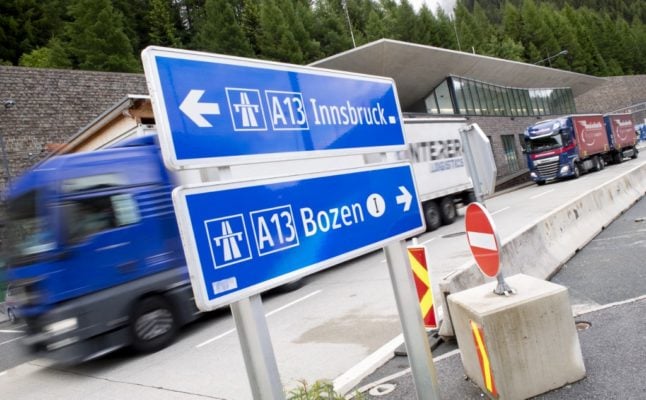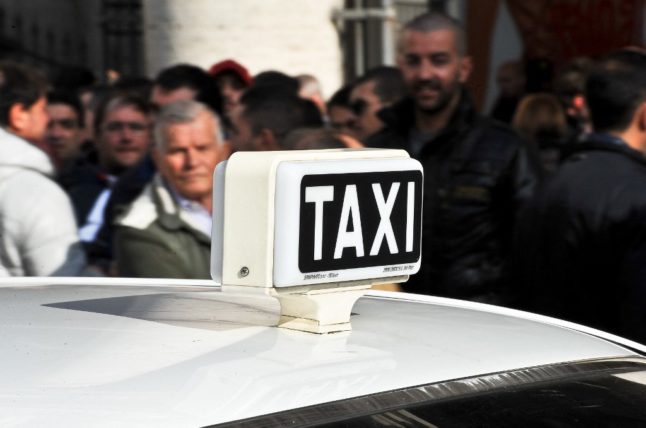TRANSPORT
Covid-19: New Austrian border rules block lorry traffic from Italy
New rules introduced on the Austria-Italy frontier have stopped lorry traffic, causing jams on the Italian side of the Brenner motorway, one of Europe's busiest.
Published: 15 February 2021 17:51 CET

Photo: Joe Klamar/AFP
Since Sunday, Austria has required goods drivers transiting through Tyrol to register beforehand and to have proof of a negative novel coronavirus test within the previous 48 hours.
That decision came after Germany decided to close its borders with Tyrol, citing a troubling surge in infections involving the South African mutation of the coronavirus.
Tyrol lies between Italy and Germany and its roads are heavily used by cross-continental transit traffic.
Tyrol's regional government said in a statement that the closure of the German border threatened to turn Tyrol into “the car park of Europe” and that it had taken measures at the Brenner crossing with Italy in order to prevent this.
The new checks have paralysed northbound traffic on Italy's Brenner motorway, used by thousands of lorries travelling every day to Austria and Germany.
As of Monday morning, a tailback of 40 kilometres had built up on the Italian side of the Brenner Pass frontier with Austria, according to several Italian media reports.
The company that runs the motorway said northbound traffic had slowed to 40-50 vehicles per hour, compared to 300-400 southbound vehicles entering from Austria.
Vehicles were being stopped in Verona, more than 200 kilometres south of the border with Austria, to check if they have the right travel documents and spare them from getting stuck near the Alpine border point, where the temperature was around -10 degrees.
Italian authorities also set up roadside coronavirus test centres to help northbound drivers continue their journeys, the motorway company said in a statement.
Road hauliers' lobby Conftrasporto-Confcommercio complained about the “enormous disruption” and appealed for help from Italy's new Prime Minister Mario Draghi.
The head of the association, Paolo Ugge, said Italy should retaliate by imposing swab tests on lorry drivers entering from Austria and Germany, and seek the immediate involvement of European Union authorities in the dispute.
Url copied to clipboard!


 Please whitelist us to continue reading.
Please whitelist us to continue reading.
Member comments